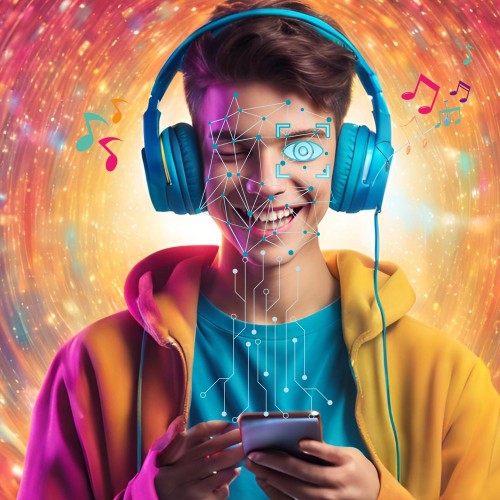Are You Moody?
By Guest Writer posted August 20, 2024 (207 View)
Jon was feeling moody and anxious. He wasn’t quite sure what? In advance of a further thought, his Spotify made a facial detection and played a song, soothing to his temperament; and he felt fine and at ease.
Welcome to the future of moods – an everyday human experience in our interaction with the world. At the extreme, Artificial Intelligence (AI) may ensure that some of the moods are not just manipulated but eliminated.
Music streamers such as Apple Music, Spotify, LiveOne, and Tidal are now experimenting with the next revolution in music listening. They are detecting our moods to match songs using AI on facial expression and body language to analyze our emotion states; voice analysis, heartbeats through wearable devices; time of day and weather conditions; and word choice. And if you are lost what your mood is then pick a color, AI will tell you.
And these names will become increasingly household - Mubert AI, Moodagent, Taranify, Moodify, and EmoSound - as the AI start-ups flex their muscles on creating the next big thing in music.
Today, a song can change a mood or reassert it. It’s a kind of a soft therapy at our own choosing: we set it or the streamers round up based on the database of songs we have been listening to. The list is human phenomenal: happy, sad, energetic, romantic, motivation, mellow, focus, angry, gritty, upbeat, confidence, and dark.
Tomorrow, AI will choose for you within minutes or seconds of your changing moods or even prior.
So, a key question arises – not so much the relationship between moods and music – but what if AI penetration into the minds to manipulate moods to an extent ‘unnatural” to humans - are we going to become less human, increasing isolated from the environment around us; or our human predicament will fight back?
One thing which might be affected is our “will”, an insatiable force that drives a human being. Moods are seen as an integral part our will, suggested an influential 19th-century German philosopher Arthur Schopenhauer.
He also tied will to human suffering as a will be never be fully satisfied because when one desire is fulfilled another emerges, leading to endless cycle of longing and discontent. So, in the future with AI manipulation, we all could become more “content” if it detects and sends out a song to eliminate a negative mood, and cut out the will which Schopenhauer said is pivotal to a human taking an action.
Another possible consequence is lessening of our natural understanding and experience of the world around us if moods are excessively tampered with. Martin Heidegger, another German philosopher, viewed moods as fundamental the way humans experience the world.
Likewise, French philosopher, Jean-Paul Sartre believed that moods are tied to human freedom and responsibility. So, if moods are excessively and artificially altered, it could affect an individual's approach to freedom and the burden of choice.
All may seem trivial. Until that is you think Schopenhauer may be right: that “will” is the source of all existence and action…and even knowledge is secondary.
Jon’s mood has evolved from anxiety, to ease and now to......!

